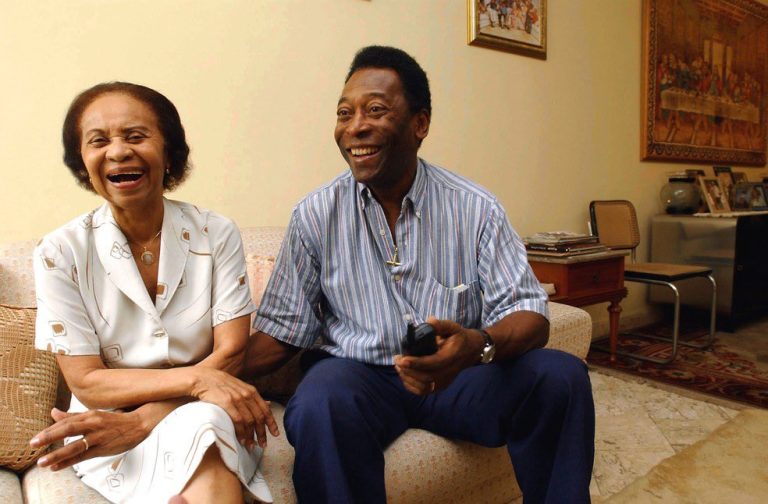The song “He put the English behind the wheel in December.” inspired Jorge Jesus’ team to the Libertadores bi-championship in 2019. It was a unique historical event in Flamengo’s world title win in 1981, lead by idol Zico.
On December 13th, the 3-0 victory over Liverpool will be 40 years old. This was the pinnacle of a generation that enthralled Brazil and etched itself into its history. There’s no better way to honor this achievement than to remember it!
Liverpool were favourites, but only on paper
In the early 1980s, Liverpool was one of the most popular teams in the world. Kenny Dalglish, the club’s most prominent player, led the English team to a string of successes, including three Champions Leagues.
In 1981, Kenny Dalglish was given permission to play in the Intercontinental Cup against Real Madrid, in which they lost 1-0. The match also featured Phil Neal and Terry McDermott.
The English team were having their best season in history, and they were largely regarded as favorites in Japan. This motivated them with the goal of establishing the greatness of English football once more.
The Zico Era and Its Stars
Flamengo’s side from the 1980s is still considered one of the best. Zico, or Arthur Antunes Coimbra, was the club’s most prominent player. The Brazilian joined the club as a kid in the late 1960s and kicked off his career right from his first professional years.
Flamengo, on the other hand, reached their pinnacle under Galinho’s management in 1978. Raul, Leandro, Junior, and Adlio, to name a few, were rarely seen playing together.
It was important to defeat Liverpool after missing out on the World Cup, while claiming Brasileirão in 1980 and Carioca and Libertadores in 1981. Only one Brazilian team, Santos de Pelé, was able to defeat their European opponents and conquer the world in 1962 and 1963.
Flamengo and Liverpool lineups
With the exception of the return of Zico, who missed the Libertadores due to injury, Flamengo arrived with an unchanged familiar lineup, while Liverpool entered the intercontinental cup in full strength.
Paulo César Carpegiani chose to play Nei Dias on the flank and Leandro in midfield, but he went back to his old system for the final.
Remember the line up!
Flamengo
Starters: Raul, Leandro, Marinho, Mozer and Júnior; Andrade, Adílio, Zico, Tita and Lico; Nunes.
Coach: Paulo César Carpegiani.
Reservations: Cantarele, Nei Dias, Figueiredo, Peu and Baroninho.
Liverpool
Starters: Grobbelaar, Neil, Thompson, Hansen and Lawrenson; Lee, McDermott, Souness and Kennedy; Dalglish and Johnston.
Technician: Bob Paisley.
Reserves: Ogrizovic, A. Kennedy, Sheedy, Whelan e Johnson.
How was the Flamengo World Cup final?
Before the Intercontinental Cup, the Libertadores final was decided in three games over the course of 20 days. The Chileans used a lot of tension and provocation in these games in order to prove their dominance to the opposite side of the world.
Flamengo was also driven by a desire to dedicate the trophy to Cláudio Coutinho, the Brazilian champion coach who laid the groundwork for this squad. He drowned in late November 1981, just days before the final.
Liverpool’s advantage was merely on paper, as the show at Tokyo’s National Stadium turned scarlet in front of a crowd of over 60,000.
Kenny Dalglish, wearing number 7, made only a few appearances in the game and was clearly outclassed by the opponent’s defensive tactic.
Red and black ball in the first half
Both teams exchanged shots in the first few minutes of the game without posing any threat. Nunes, on the other hand, took advantage of the goalkeeper’s error in the 13th minute, scoring with a fantastic strike from Zico assist.
The Reds weren’t expecting such ferocity so early in the game. They merely attacked, even though Johnston’s strike came close to leveling matters, it was no good. Raul stayed a spectator and was rarely seen. Zico, the protagonist for the Brazilian side, demonstrated his talent, mounting more problems for the Reds’.
Tite was fouled in the 34th minute, which led to Adlio scoring the game’s second goal off a rebound after Grobbelaar had saved the Brazilians’ prior attempt.
In the first half, the rubro-negro confidence got stronger, and their dominance was resounding. The third goal came in the 41st minute from a combined effort from Zico and Nunes.
Counting the minutes to celebrate
Even after a countdown to release the “champions” shout was exhibited, Flamengo didn’t dip in quality or technical ability in the second half, overpowering the English side.
Raul was virtually invincible throughout the game, and was a mere spectator on the pitch, as Liverpool were so shaken by the result that they were unable to press for a consolation goal.
Carpegiani’s team was crowned World champions with a score at 3-0 after Mexican referee Rubio Vazques blew the final whistle, restoring Brazilian football to its former glory.
FIFA recognition as world champion
The Intercontinental Cup also known as the European/South American Cup at the time, did not bear the FIFA seal. CONMEBOL and UEFA collaborated to put up the event.
Corinthians defeated Vasco on penalties in the middle of Maracanã in the inaugural Intercontinental cup organized by their partnership in 2000. FIFA took over the role in 2005, and the competition is now held annually with representatives from all continents.
In 2017, the governing body of football declared the winning teams of the Intercontinental Cup between 1960 and 2004 to be world champions. Despite the fact that no one doubted it, Flamengo’s world title was thus verified.



